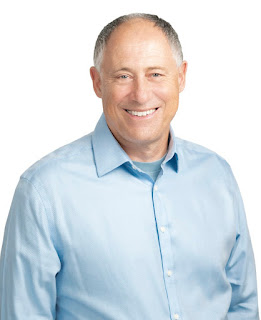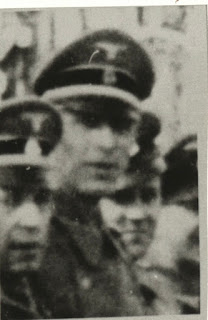Friday, October 27, 2023
7 Questions with Scott Martelle, Author of 1932: FDR, Hoover, and the Dawn of a New America
Friday, October 13, 2023
7 Questions with Tony Bernard, Author of The Ghost Tattoo
Tony Bernard grew up sailing, surfing and swimming on the Northern Beaches of Sydney, being raised with his younger sister and brother by his hardworking father Henry, a local family doctor. He initially studied dentistry at Sydney University before following his dad into medicine, undertaking his medical training at Nottingham and Cambridge Universities in Britain.
After returning to practice in Newcastle, regional NSW and Sydney, he spent his career working in the emergency department of Mona Vale Hospital, the same hospital in which his dad had previously worked for many years. More recently, he also works in the emergency department of the new Northern Beaches Hospital.
His father Henry was his hero, and it was natural that he followed him into the medical profession. Yet it was one thing to idolize Henry and another to understand who he was and what he had gone through. Over decades and during multiple trips to Europe, Tony found himself on a path of discovery, eventually writing his father's memoirs shortly before his death in 2016. What began as a journey to understand his father became the uncovering of an extraordinary holocaust survival story.
Tony lives on the Northern Beaches of Sydney with his wife Jennifer and daughter Sarah.
His book, The Ghost Tattoo, was published in September or 2023. His website is https://www.tonybernard.com.au/
I have had lifelong interest in history from childhood due to my father’s interest in both history and current affairs .This stems from his life experience as a Holocaust survivor. We grew up discussing past events particularly from the Second World War. I studied history at high school but it is now one of my main hobbies combined with geopolitics and current affairs as well. At school I never fully appreciated the importance of documentary evidence. History to me had been the telling of stories about past events. One of the things I am proud about in my book 'The Ghost Tattoo’, is that fact that my father’s Holocaust survival story is backed by evidence. When I showed a draft of my book to the historian at the Sydney Jewish Museum (SJM), he told me that the things described my book needed to be supported with evidence and that he would help me. In particular he helped me get access to the files of the war crimes trial at which my father was a witness. After reading the finished book, he now says that he is unaware of any other Holocaust survivor with as much evidence backing up their story as in my father’s case. I am a medical doctor and am very aware of the history of medicine and how rapidly medical practice changes. And medicine like history is evidence based. We have all just experienced the biggest medical crisis of our lives in the Covid 19 pandemic, which will be a major defining historical event of the early 21st century. History explains so much of the world in which we live. And because history is the product of human existence, it is affected by human behaviour. Thus, we see history repeated because human behaviour is repeated. And with increasing understanding of the forces driving geopolitics, history becomes less of a random series of events and more of a ‘predictable’ science. Because of my father’s Holocaust experience including the loss of his parents and wife, as well as his multiple near-death experiences, I am interested in twentieth century history, particularly the Second World War period. The Holocaust was the defining point of difference about the Second World War, even though there have been some attempts at genocide in previous wars ( e.g. the Armenian genocide by the Turks in WW1). But I believe the twentieth century could really be called the Eighty Years War, starting in the Balkan Wars around 1912, leading to WWI, which led to the birth of communism and fascism, which led to WW2, then the Cold War, which lasted until the collapse of the USSR in 1991. One of the best things to come out of the 20th Century is the accountability of governments in democracies to their people. WW1 was started by unaccountable monarchies whereas by the end of the 20th Century democratic governments around the world are held much more accountable for the lives of their soldiers and citizens. Initially my father had me record his oral history of his early life and Holocaust experience for the record for family and friends. However, the more I researched over the years, the more I learned and uncovered, culminating in the documentary evidence I found including access to the war crimes trial records I mentioned earlier. It was not until I wrote the final chapter of the book that I came to understand my father’s regret and turmoil about the role he played in the Holocaust. I just ask the reader; What would you have done in his position? 7. What did you learn about yourself and your family from this experience? I have come to realise that, in effect, my father is having me explain to the world his position and role during the Holocaust. He is getting me, on his behalf, to put on the record for history, what he had seen happen in the Tomaszow Jewish Ghetto during this terrible time. |












